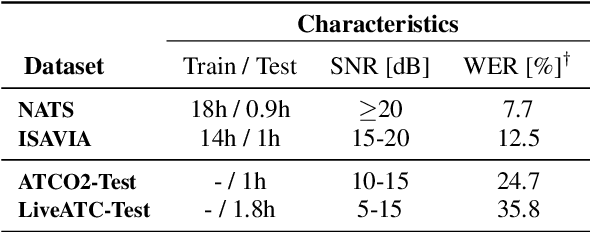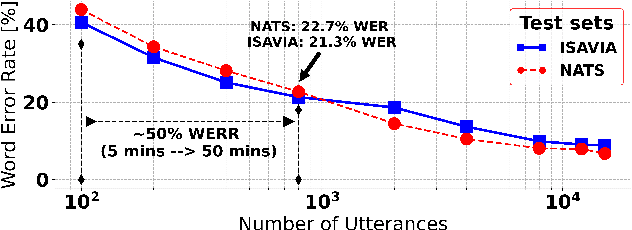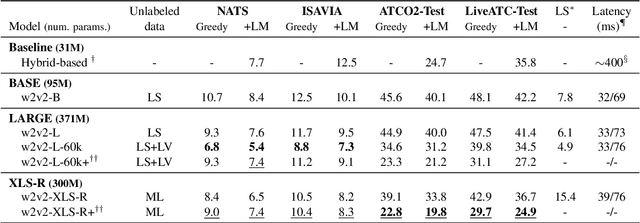How Does Pre-trained Wav2Vec2.0 Perform on Domain Shifted ASR? An Extensive Benchmark on Air Traffic Control Communications
Paper and Code
Mar 31, 2022


Recent work on self-supervised pre-training focus on leveraging large-scale unlabeled speech data to build robust end-to-end (E2E) acoustic models (AM) that can be later fine-tuned on downstream tasks e.g., automatic speech recognition (ASR). Yet, few works investigated the impact on performance when the data substantially differs between the pre-training and downstream fine-tuning phases (i.e., domain shift). We target this scenario by analyzing the robustness of Wav2Vec2.0 and XLS-R models on downstream ASR for a completely unseen domain, i.e., air traffic control (ATC) communications. We benchmark the proposed models on four challenging ATC test sets (signal-to-noise ratio varies between 5 to 20 dB). Relative word error rate (WER) reduction between 20% to 40% are obtained in comparison to hybrid-based state-of-the-art ASR baselines by fine-tuning E2E acoustic models with a small fraction of labeled data. We also study the impact of fine-tuning data size on WERs, going from 5 minutes (few-shot) to 15 hours.
 Add to Chrome
Add to Chrome Add to Firefox
Add to Firefox Add to Edge
Add to Edge